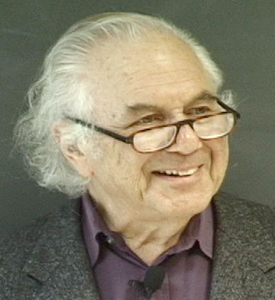- General impressions of G.'s system.
- Looking backwards.
- One of the fundemental proposations.
- The line of knowledge and the line of being.
- Being on different levels.
- Divergence of the line of knowledge from the line of being.
- What a development of knowledge gives without a corresponding
change of being and a change of being without an increase in knowledge.
- What "understanding" means.
- Understanding as the resultant of knowledge and being.
- The difference between understanding and knowledge.
- Understanding as the function of three centers.
- Why people try to find names for things they do not understand.
- Our language.
- Why people do not understand one another.
- The word "man" and its different meanings.
- The language accepted in the system.
- Seven gradations of the concept "man."
The first three, that we're born with and all three is on the same level. #4 has a center of garavity, #5 has
unity with self-consciouness, #6 has objective consciounes, and #7 has a permanent I.
(Understanding this concept we can understand humanity better.)
- The principle of relativity in the system.
- Gradations parallel to the gradations of man.
- The word "world".
- Variety of its meanings.
- Examination of the word "world" from the point of view of
the principle
of relativity.
- Tha fundemental law of the universe.
- The law of three principles or three forces.
- Necessity of three forces for the appearance of a phenomenon.
- The third force.
- Why we do not see the third force.
- Three forces in ancient teachings.
- The creation of worlds by the will of the Absolute.
- A chain of worlds or the "ray of creation".
- The number of laws in each world.
|
 Return
Chapter#3
Chapter#5
Return
Chapter#3
Chapter#5